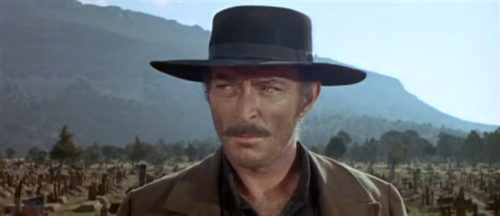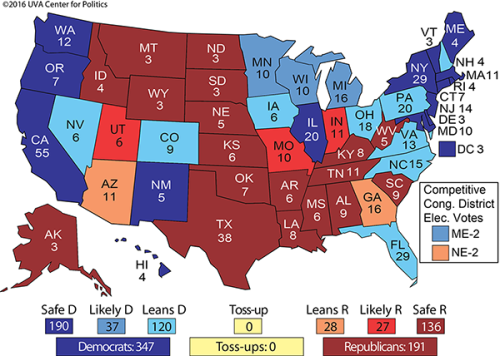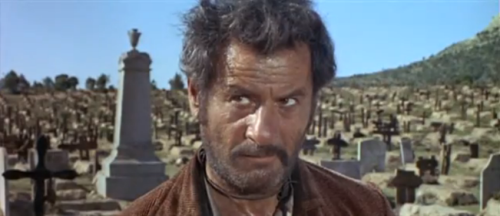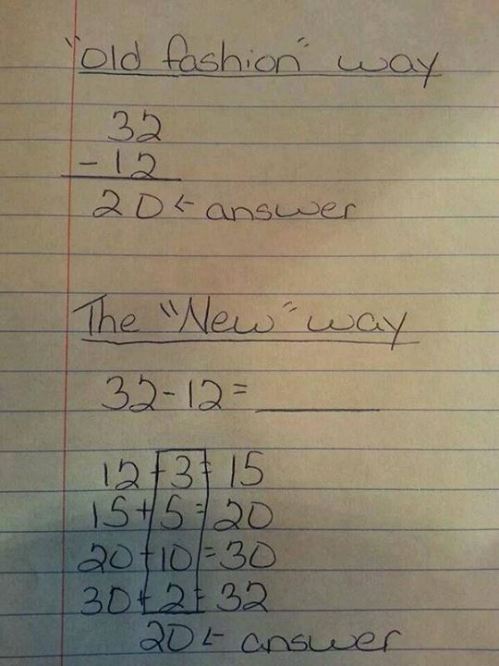Early voting in Hamilton County starts tomorrow, so it’s time for my election analysis. So, here goes…
President
We have seven candidates on the ballot. I am evaluating them in the order in which they appear.
Donald Trump and Mike Pence
I can’t make this any simpler or any more blunt: There is no good reason to vote for Trump. He’s reckless, he lies constantly, he thinks he knows and understands more than he does, he’s a horrible role model, and he cannot be trusted. I’ve heard people say that they are voting for him because they don’t trust Clinton to make acceptable Supreme Court nominations, but this argument doesn’t hold water. First, the GOP will not have fewer than 41 senators, so they will be able to block anyone Clinton nominates–and the leadership is indicating that they will do just that. (I’m putting aside the dereliction of duty argument.) Second, there’s no reason to believe that he will keep his word and nominate judges acceptable to the right anyway.
Where Donald Trump truly frightens me is in the area of nuclear weapons. He doesn’t seem to grasp why we don’t use nuclear weapons–if we use them, other countries, such as India, Pakistan, and North Korea will see their use as fair–and he doesn’t understand even the most rudimentary things about our nuclear arsenal. Yes, Russia has more warheads than the U.S., because we agreed to that in numerous treaties, because they know and we know that U.S. delivery systems are more accurate and more reliable than Russian delivery systems. (The Bulava missile has about a 40% failure rate, for one example.) Putin’s rapid modernization of his nuclear arsenal needs to be considered with the fact that Russia did almost nothing with their nuclear arsenal from 1990 to 2010. It will take him a long time to catch up, and the Russian economy isn’t exactly robust.
But if there’s anyone I like less than Trump, it may be Mike Pence. Pence is so far right that he signed a bill as Governor of Indiana that requires mothers who miscarry to bury or cremate the fetus. He’s advocated for government resources for conversion therapy for homosexuals. When in Congress, he voted against raising the minimum wage to $7.25. He’s solidly anti-science, denying climate change, evolution, and repeatedly voting against most environmental legislation. He’s as far right and away from mainstream America as any politician out there.
Like I said above, there are seven candidates on the ballot here. Trump and Pence are my seventh choice. Given some of the ones I describe below, that’s an achievement.
Hillary Clinton and Tim Kaine
If this were just about the issues, my choice would be a no-brainer: I would vote for Hillary Clinton. Of the four major candidates, she is the only one who is consistently pro-science in her policies, which is pretty important for me. I want candidates who vote based on research, not gut feelings or blind faith. And there is a scenario in which I will vote for her: If the polls in Tennessee get close–right now they show Trump with a ten to twelve point lead–but the national polls show the electoral vote remaining close–currently FiveThirtyEight is predicting 343 for Clinton to 194 for Trump–I will vote for Clinton just to make sure that Trump isn’t elected. Otherwise, I will cast my vote for a third-party candidate as a protest vote to show my disgust with the Republicans and Democrats and their failure to work together on anything.
My problem with Clinton is based on two things. First, she has changed her position on many important issues. This, in itself, is a net positive. I want candidates who will change their minds when they learn new information. My problem is that Clinton consistently lies about having changed her mind. The most egregious example is her position on gay marriage. For years she said she was opposed to it, now she’s in favor of it, but she says that her position hasn’t changed. (I haven’t changed my position on gay marriage: I have believed, for as long as I can remember, that government should get out of the marriage business. Where my position has changed is that I now believe that sexual identity and orientation should be a protected class under civil rights laws.)
Second, I believe that Clinton is too entrenched with the establishment to necessarily do the right thing, even when she knows it to be right. She’s obviously pragmatic and knows who supports her–*cough* Goldman Sachs *cough*–which makes her more pro-big business than she probably should be. A vote for Hillary Clinton is a vote for the status quo. The status quo is better than what we would get with Trump, but I can’t give anything better than a room temperature endorsement. If you are in a swing state, please vote for Hillary Clinton, because Donald Trump is literally World War III-level dangerous.
“Rocky” Roque De La Fuente and Michael Steinberg
Rocky is an interesting character, and the Reform Party nominee. He ran an unsuccessful campaign for Senate in Florida this year as a Democrat, and his policies–where I can find them–have a left-leaning tilt. Having said that, he does seem to be a moderate Democrat, but, like the other candidates, he has had some ethical problems. His policy pages are a series of “what if?” questions, which really don’t say what the answers are.
He doesn’t stand a chance of getting elected, but he’s more moderate than the other independents, as you will see below. As such, he might get my protest vote.
Gary Johnson and William F. Weld
Johnson is the Libertarian candidate. In general, I like Libertarians on spending issues and civil rights issues and dislike them on foreign policy, and things are no different here. Johnson is far too isolationist for my liking, wanting to detangle the U.S. from international commitments, except in the area of trade. In an era of increasing isolation and nationalism worldwide, disengaging from the world stage is a path to regional or even global conflicts. As I consider foreign policy to be the single most important job of the president, I have a hard time voting for Johnson.
Beyond that, my problem with Johnson is my general problem with Libertarianism: It is a philosophy of extremes. President Johnson would have a hard time working with either party in Congress, but his positions are far right in some areas and far left in others, so he wouldn’t be the man-in-the-middle helping to get things done. Johnson and Weld are Republicans running as Libertarians, and their policies don’t differ significantly from Trump and Pence. Having said that, if you’re a Republican looking for a better option than Trump and you can’t bear voting for Clinton, you could do much worse than Johnson.
Alyson Kennedy and Osborne Hart
Kennedy is a former coal miner who is the candidate for the Socialist Workers Party. Her campaign is a textbook anti-capitalist rant, including holding up the Cuban Revolution as a positive example.
Still, not as bad as Donald Trump.
Mike Smith and Daniel White
Mike Smith is, for lack of a better description, a Tea Party candidate. Unlike many of the Tea Party people I have met, Smith doesn’t seem to have any of the underlying racism, and he seems like, underneath it all, a good person. His positions mostly fit within the Republican platform. As such, I don’t agree with much of what he supports, because of his desire to change policy to integrate religion into public life through the expansion of school vouchers and allowing businesses to discriminate based on religious beliefs.
Still, not as bad as Donald Trump.
Jill Stein and Ajamu Baraka
Stein is the Green Party candidate for President. In the past, I have supported some Green Party candidates, because they tend to be pro-science and pro-environment. Stein cherry picks which science she supports, and some of her stances result in anti-environmental positions, such as her opposition to nuclear power and GMOs. Stein is solidly isolationist in her foreign policy, which, as with Johnson, deeply worries me.
Stein wants to ban GMOs until they have been proven safe, but that’s not how science works–and a doctor should know that. GMOs have been extremely rigorously tested, and there is absolutely no evidence that they are any more harmful than their non-GMO counterparts. As far as they can be, GMOs have been “proven” safe. Stein is not against vaccinations, but she has pandered to anti-vaxxers by softening tweets where she has expressed support for vaccinations, saying things like
In the US, however, regulatory agencies are routinely packed with corporate lobbyists and CEOs. So the foxes are guarding the chicken coop as usual in the US. So who wouldn’t be skeptical? I think dropping vaccinations rates that can and must be fixed in order to get at the vaccination issue: the widespread distrust of the medical-industrial complex.
Of the eighteen members of the Vaccines and Related Biological Products Advisory Committee, two work for pharmaceutical companies, while eight come from academia, four are government researchers, with the remainder being private researchers or work for hospitals. Despite strong evidence to the contrary, she has weakened her support of vaccines to bring anti-vaxxers into her tent.
Still, not as bad as Donald Trump.
Conclusion
Right now, I’m still undecided. I will not vote for Trump, Kennedy, Smith, or Stein. I will only vote for Clinton if there’s a reasonable chance for her to win Tennessee and those electoral votes matter in the election. Of the two remaining candidates, I’m leaning toward Rocky, but I might swing over to Johnson.
House of Representatives, 3rd District
Me.
Yeah, I’m voting for myself.
Now, if I weren’t running, who would I vote for? Well, I can rule out Rick Tyler, obviously. If you held a gun to my head and made me vote for a Republican or Democrat, I would vote for Fleischmann over Shekari, because, while I agree with Shekari on more issues, Fleischmann has significant seniority on the House Appropriations Committee, and as he gains seniority, that brings money to the district. Yeah, sometimes power matters. But, frankly, it’s a choice between a party loyalist lawyer and a party loyalist lawyer. I really haven’t seen anything from either one of them that makes me think they are the least bit independent.
That leaves the other independent, Cassandra Mitchell. We had a good Skype call a few months ago, and I recently inaccurately portrayed her as a Green Party supporter. She is, but she’s not just that. She tends to lean socialist on a few issues, such as thinking price controls and rent controls are necessary, while we are in agreement on the need to raise the minimum wage. We agree on far more than we disagree on, such as access to real sex education and contraception and legalization of marijuana. She is more pro-government than I am, certainly. Most importantly to me, she’s a fellow gamer, a qualification for which I have a significant bias. Gamers, in my experience, tend to think more strategically than non-gamers and, because of the diversity of characters in games like Dungeons & Dragons, they tend to place a higher value on diversity of skills and backgrounds, which are good traits for a politician.
So, if I weren’t running, I’d probably vote for Cassandra Mitchell. But I’m also under no illusions: Fleischmann is going to be re-elected, barring a massive explosion in the Republican Party, and there’s very little Shekari, Mitchell, Tyler, or I can do about it.
If you’re thinking about voting for Tyler, do us all a favor and stay home on Election Day. Every Election Day.
Tennessee Senate District 10
Khristy Wilkinson (D) is challenging incumbent Todd Gardenhire (R). Wilkinson is a leftist Democrat and Gardenhire is a right-wing Republican. I tend to lean a bit left of center when compared to the majority here, so I agree with more of Wilkinson’s positions than Gardenhire’s, but that’s not why I will be voting for Wilkinson. Like I said before the August primary: Gardenhire isn’t terribly tolerant of those with opposing views, and I’m not a big fan of name callers.
I recommend that you join me and vote for Khristy Wilkinson as well.
Ordinance No. 13007 Amendment
This one seems to me to just be a paperwork clarification on city employees needing to live in Chattanooga. I can’t find any reason to oppose it.
Ordinance No. 13039 Amendment
This amendment eliminates a requirement for the city to hire a “management analyst.” Yeah, we can do without that, so voting for the amendment makes sense.
Conclusion
I hear people say all the time that if you don’t vote, you don’t have the right to complain. Despite the fact that I vote in every election–barring a couple of minor elections where work crises kept me from the polling place on election day–I don’t agree with this. I know exactly how this election is going to turn out. Trump is going to win in Tennessee, Fleischmann and Gardenhire will be reelected, and both amendments will pass. None of these races will be close. I wish I was wrong, but I know I’m not. I’ve been doing this for a long time.
I wish that I could get everyone to do their research and vote. That’s not realistic. Most people are too busy living their lives to put sufficient time into educating themselves about the candidates and issues, so they trust their trusted news sources, which are always biased. (I’m biased, so believe what I say at your own risk.) As a result, I think many voters make bad, or, at least, ill-informed decisions.
Please do your research and vote. If you can’t, I won’t hold it against you, and I will never say that you don’t have the right to complain about the government if you don’t. Some people will say that if everyone has that attitude, we’ve lost before we started. Maybe they are right, but we can’t and shouldn’t force people to vote, especially if they don’t take that responsibility seriously.
I hope that you find this analysis helpful. As always, if you have any questions, comments, or if you think I got something wrong, please let me know.









